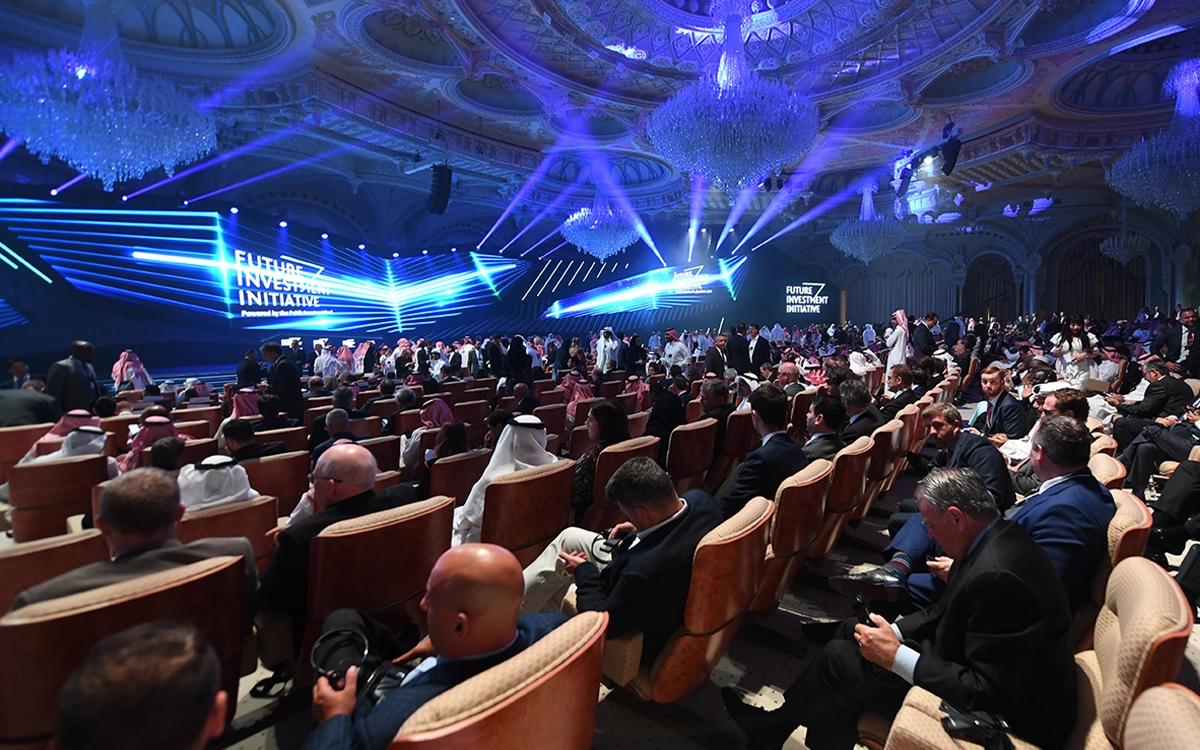When the Future Investment Initiative (FII) opened its doors in Riyadh from 27 to 30 October 2025, it signaled more than the return of a flagship investment conference. With more than 9,000 delegates, heads of state, and USD 50 billion in announced agreements, this year’s edition offered a window into the economic forces that will shape the decade ahead. The forum’s theme, “The Key to Prosperity: Unlocking New Frontiers of Growth”, captured a broader shift in tone: conversations were less about short-term markets and more about the structural foundations of global economic transformation.
Unlike some international gatherings where leaders trade prepared remarks, this year’s FII produced real signals. In Riyadh, the alignment of technology, energy, capital markets, and long-term investment strategies became clearer. The discussions were grounded in facts, but the implications extend far beyond the three days of the event.
Infrastructure Returns to the Center of Economic Strategy
A recurring theme throughout the forum was the effect of artificial intelligence on real-world infrastructure. Senior leaders from Blackstone and BlackRock highlighted a trend that is reshaping investment priorities worldwide: AI now consumes vast amounts of electricity, far beyond what many power systems were built to handle. Reporting from the event captured this point bluntly, data centers, cloud computing, and AI training clusters have turned electricity supply into a strategic constraint.
This message matters because it shifts the balance between digital innovation and physical capacity. For much of the past decade, software has dominated economic narratives. However, in Riyadh, it became evident that the next stage of digital growth will be decided by the availability of land, power, water, and transmission lines. For investors, this is steering capital back toward energy infrastructure, grid upgrades, and industrial capacity. It also creates a new type of competition: the regions that can supply stable, large-scale energy will have an advantage in attracting AI-driven industries.
Saudi Arabia’s strategy aligns naturally with this shift. The Kingdom’s long-term focus on large energy and industrial projects is increasingly relevant as AI becomes more physically demanding. FII positioned Riyadh not just as a participant in this trend, but as a place where large-scale physical and digital infrastructure intersect.
Riyadh Emerges as a Hub for Asset Management
The forum also delivered concrete developments in capital markets. BlackRock and the Public Investment Fund expanded the BlackRock Riyadh Investment Management platform, introducing new locally managed mutual funds focused on Saudi equity strategies and fixed income across the Middle East and North Africa. For the region, it was an important signal: global asset managers are strengthening their presence inside the Kingdom, not simply allocating to it from abroad.
This shift marks a structural change in the global investment landscape. For years, global firms engaged with the Middle East primarily through project investments or sovereign mandates. Now, major institutions are establishing their own management capabilities in Riyadh, hiring local teams, and building products for both regional and international investors. The trend strengthens Riyadh’s bid to become a leading financial center, one rooted in long-term investment and institutional infrastructure.
Financial Systems Prepare for Digital Transformation
Discussions at FII also touched on the future architecture of financial markets. Tokenization, the digital representation of traditional assets, emerged as one of the most important long-term topics. It was framed not as a speculative technology but as a practical step that could make financial markets more efficient and more transparent.
The logic behind this interest is straightforward. As global investment becomes more complex and as cross-border flows deepen, the infrastructure that supports market transactions needs to evolve. Tokenization offers a way to modernize settlement, expand access to various asset classes, and reduce operational friction. For a region that is building new financial infrastructure from the ground up, it presents an opportunity to leapfrog older systems.
The expansion of BRIM showed how this transformation is already beginning. New investment vehicles, locally managed strategies, and regional fixed-income products point to a marketplace that is becoming more sophisticated and more interconnected. This evolution, is one of the most consequential elements of FII’s agenda.
The Intersection of Energy, Technology, and Capital
What made this year’s forum distinctive was how these themes, energy demand, AI, asset management, and financial modernization, converged. On their own, each trend is significant. Together, they form a picture of a global economy entering a phase defined by the tight coupling of physical and digital systems.
Artificial intelligence depends on energy; digital markets depend on physical infrastructure; investment strategies depend on the ability to manage and allocate capital across borders. In Riyadh, these relationships were not theoretical. They were visible in the deal announcements, in the panel discussions, and in the strategic commitments made by institutions.
Riyadh’s Expanding Role in Global Economic Planning
The scale of FII 2025 reinforced Riyadh’s role as a meeting point for global capital and long-term economic planning. With sovereign wealth funds, multinational companies, and technology leaders all represented, the forum served as a marketplace of ideas and strategies. For Saudi Arabia, the event strengthens its position as a central player in the global investment ecosystem, not only as a source of capital but increasingly as a destination for institutional expertise and technological ambition.
The city’s rapid transformation, large-scale infrastructure projects, and expanding financial ecosystem give it a distinctive place in the global economy. The presence of international asset managers, the growth of local financial capabilities, and the region’s strategic investment agenda all contribute to an environment where long-term decisions are made and executed.
The Takeaway: A Clearer View of the Economic Decade Ahead
FII 2025 did not offer simple predictions. Instead, it revealed the issues that global leaders consider most urgent: the need for reliable energy, the modernization of financial infrastructure, the expansion of digital capabilities, and the creation of investment systems capable of supporting rapid transformation.
As the decade unfolds, many of the themes highlighted in Riyadh, from AI-driven infrastructure demand to the rise of new financial hubs, will shape global markets. And while the outcomes will vary across regions, FII made one thing clear: the next phase of global growth will not be defined by a single trend, but by the convergence of several powerful ones.








